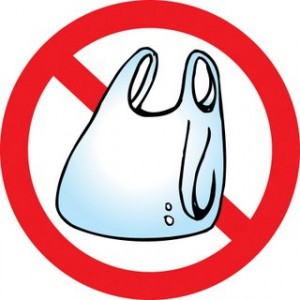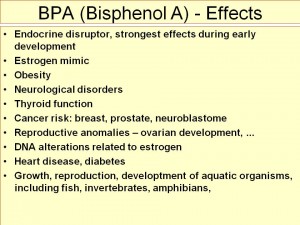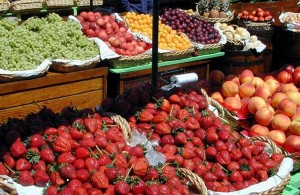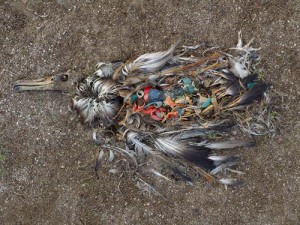4 Healthy Reasons to Eat Plastic-Free Foods
Lifestyles of Health and Sustainability. LOHAS. This is a blanket term, often used in marketing, for a certain demographic that tends to be passionate about the well being of themselves and the environment. The irony of the term is that in many instances, individuals considered to embody LOHAS tend to focus solely on one side of the equation (either health or sustainability). As someone who has worked in both sectors, I’ve seen this first hand.
I’ve worked with some of the worlds’ premier environmental activists who will go to hell-and-back to use carbon-free transportation, but will suck down a cigarette immediately after riding their bike. I’ve also worked with rigorously health-minded citizens who never touch processed foods, but guiltlessly buy a daily salad packaged in plastic containers and eaten with plastic utensils that will survive into eternity after one use. And to be frank, I am guilty of all of the above.
This hypocrisy got me thinking about practical ways that our community’s LOHAS ambassadors could kill two birds (health & sustainability) with one stone. And I came across one semi-practical idea: plastic. Rather, the elimination of plastic use in our everyday diets.
The environmental benefits are well-known. Less plastic means less pollution and more thriving ecosystems. And because plastics are petroleum-derived products, it means less greenhouse emissions. So that knocks out sustainability. But what about health? While not as obvious, eliminating the use of plastic can benefit our health in a variety of ways (while also benefiting the environment!). In this blog, I discuss four ways in which it can do so.
1. Avoiding plastic reduces our exposure to BPA (bisphenol A), Phthalates, and other detrimental chemicals.
Research has shown that the chemicals leaching from plastic have been shown to mimic our body’s hormones, and in turn manipulate our endocrine system in serious ways. The endocrine system is the set of hormones and glands that regulate the human body, including growth and reproduction. The cells in our bodies contain hormone receptors, which are responsible for binding hormones. Think of it as a lock-and-key device. When a receptor is ‘unlocked’ by a hormone, it sets off a physiological chain reaction that impacts our body in seriously altering ways.
BPA has been shown to mimic the hormone estrogen, and by triggering estrogenic pathways at unnatural times it is now being heavily correlated with the rising obesity, infertility, and cancer rates in our community. But it is not just BPA that is killing us. It is an accumulation of chemicals, including BPA, phthalates, parabens, and more, that are causing this endocrinal response. A 2002 study showed that when tested alone, 11 estrogen-mimicking chemicals had no noticeable effect, but when used at once, this ‘cocktail’ of chemicals dramatically enhanced the hormonal effect. To learn more, check out this WIKI page on BPA.
Blood serum testing has revealed that nearly every American has BPA in their body. If you don’t, you aren’t living in the 21st century. But this doesn’t mean we should concede. Avoiding plastic foods is the first step in reducing our exposure.
2. Processed foods/beverages come in plastic. By avoiding plastic, we’re forced to avoid bad foods.
Take a minute to think about the unhealthiest foods and drinks. What comes to mind? For me, sugary beverages come first. Sodas and artificially flavored juices might be the single most detrimental food item in the American marketplace. My next thought is candy bars, chips, and other processed carbohydrate snacks – in short, anything you’ll find in the vending machine down the hall. Almost all of these sweetened drinks and junk foods come in plastic containers. If there is any confusion, chip bags and wrappers are made from plastic film. Here is a great resource for information on plastic films: Plastic Films 101.
By eliminating plastic from our diets, even if it is only 2-3 times a week, we can vastly improve our nutrition by avoiding these junk foods.
3. Buying fresh foods sans plastic at the grocery store is hard! Instead, we can turn to alternative methods beneficial to our physical and mental health!
Buying fresh vegetables or fruits in a plastic-free manner is difficult. Ordinary grocery stores provide the tear-off, disposable plastic bags to collect our fresh goods, and some even package all their fresh produce in plastic boxes (not naming names…). To obtain our foods in a plastic-free manner, we’re left with a couple options.
First is to start a vegetable garden. From garden to kitchen, plastic can be easily avoided. Additionally, growing and maintaining a vegetable & fruit garden can be emotionally therapeutic, can help us get exercise, and perhaps even become a family bonding activity. If you don’t have a garden, going to the local farmer’s market can be another place to pick up fresh foods plastic free. And again, it is a great place to bond with family and friends, and in the case of a farmers market, build community.
4. Ultimately, reducing plastics in our environment protects our health.
Nearly every single bit of plastic ever produced still exists today. And will continue to exist for a very, very long time. Plastic is quite literally indestructible. It crumbles into tiny fragments as it is exposed to sunlight, the sea, and other elements. In the end, it will be degraded into one indestructible molecule. These molecules then move up the food chain, from plankton, to fish, and onto our dinner plates. They go from the seas into our creeks, our groundwater, and inevitably, our faucet. The more invisible the pollution, the more it invades our bodies.
When the majority of us contemplate motives for giving up plastic, we think of the animals. We think about the pictures of dead birds whose bellies are full of plastic. What we forget is that these pictures are a literal representation of what is happening to us. It is just at a microscopic level.
If saving the environment doesn’t motivate us, saving the health of ourselves, and the future generations, should. Above all else, this is the reason to avoid plastic on a day-to-day basis.
Leave a comment! Share your thoughts on eliminating plastic, or suggest other actions we can take to be healthy and sustainable!
5 Responses to 4 Healthy Reasons to Eat Plastic-Free Foods
Leave a Reply to patrick Cancel reply
Your email address will not be published. Required fields are marked *
*
*
You may use these HTML tags and attributes: <a href="" title=""> <abbr title=""> <acronym title=""> <b> <blockquote cite=""> <cite> <code> <del datetime=""> <em> <i> <q cite=""> <strike> <strong>
Join Our Community
Archives
- January 2023
- December 2022
- September 2022
- August 2022
- June 2022
- May 2022
- April 2022
- March 2022
- February 2022
- January 2022
- December 2021
- November 2021
- October 2021
- September 2021
- August 2021
- July 2021
- June 2021
- May 2021
- March 2021
- September 2020
- August 2020
- July 2020
- June 2020
- May 2020
- April 2020
- March 2020
- February 2020
Subscribe

Sign up to receive FREE toolkit
From Dr. Hyman, #1 NY Times & Amazon Author
We never spam or sell your e-mail












some hard hitting stuff here
I will surely agree with the writing of Mr V Singh. I think the initiative taken by the Himachal Pradesh Govt (State of INDIA)is really laudable as the use of plastic carry bags has been banned here completely. Apart from the invisible benefit that the masses are getting (healthy environment)a great change has been seen in the surroundings because we don’t find any choked drains etc during rainy season, which otherwise was a menace. I really thank the young writer Mr V Singh who has taken up this issue and passing it for educating the masses for taking care of their health.
Thanks for the support!
I think we have to go back in time. I remember as a child going to the grocery store with my mother and putting our fruits and veggies in brown paper bags. Sure it took a little longer, because the checker had to open the bag to look inside to see what was in there, but in the name of speed and convience look what we have done to ourselves!
Hi there I am currently using tupperware that is free of BPA am I still at risk?